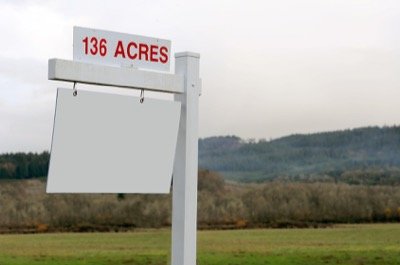What To Know About Buying Land
Posted by Justin Havre on Thursday, July 18th, 2019 at 2:58pm.
 There are many reasons to buy land in Canada. Some are looking for acreage for a farm or ranching. Others need a parcel for residential or recreational purposes. Depending on the area, it may be important to review specific rules and bylaws that apply to a province or territory. However, it is possible to invest in land in Canada using a few important considerations. And buying land is not the same as buying a home.
There are many reasons to buy land in Canada. Some are looking for acreage for a farm or ranching. Others need a parcel for residential or recreational purposes. Depending on the area, it may be important to review specific rules and bylaws that apply to a province or territory. However, it is possible to invest in land in Canada using a few important considerations. And buying land is not the same as buying a home.
For informational purposes only. Always consult with a licensed real estate professional before proceeding with any real estate transaction.
Are You Interested in Rural Land?
Some may be looking for significant space to set up a homestead or to ranch. There are differences between buying land in a major city or in a large open space. Municipal sewer systems and paved roads are generally features of urban areas and their lack may need to be factored in when looking at rural properties. While someone may only need to turn on the tap for water in developed communities, an individual will potentially have to sink a well for potable water on a rural property. Buying rural land requires that additional responsibilities be assumed, like maintenance of septic wells, garbage removal, repairs to access roads or incursions from pests. A plan may need to be created to address vandalism or the potential of unpermitted hunting.
What Details Do Buyers Need?
A potential buyer will need important information on the property prior to a purchase. The surveying of a parcel with its acreage and boundary lines will be needed if not done earlier. A buyer may also want to avoid properties with easement problems or a lien. Such issues can lead to delays in closing or in creating access to the land. Know the zoning regulations or any deed restrictions before attempting to develop a parcel. Speaking with a local agent may help with getting additional information. For some types of property and locations, it may be difficult to find similar comps for price comparison.
Individuals exploring a property will benefit from mapping out features and access points. It is useful to keep a record of features like low spots, hills or terrain variations. The type of soil on a parcel may be a factor for those looking to farm or raise animals. One's purpose may dictate desirable aspects of a particular piece of land.
What About Land Near a Reserve?
There can be restrictions that arise from choosing land next to an environmental reserve. While this does not apply to everyone buying land, those with a property next to a reserve should be aware that no alterations can be made to land designated as an environmental reserve. This needs to be taken into account when developing an adjacent parcel of rural land.
Consider What You Need
How much will it cost to make improvements? Does accessibility already exist or does it have to be created? Is frontage needed along a road? Are there existing structures that need removal or repair? All such questions are important to buyers of Westridge land and homes in more rural and undeveloped areas.
When determining a budget, a buyer often needs to understand the priority of projects and their cost. Some projects may need to be done soon after purchase and others may be started at a later date. Any acquired property needs to be accessible and improved to meet a buyer's purpose, the extent of which often impacting the cost and length of time required to develop the land. Scheduling projects over time may make land improvements more affordable for a buyer.
For informational purposes only. Always consult with a licensed real estate professional before proceeding with any real estate transaction.
